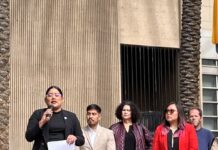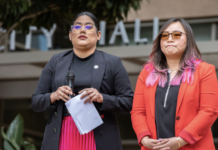In order to help the humanitarian situation at the border, Mexican President Andres Manuel Lopez Obrador is calling for a Central America Marshall Plan. In addition to helping the overcrowded, unhygienic and dangerous migrant camps the $30 billion plan will also aid regional development to ease migration pressure. Eager to halt migration, President Trump has agreed to fund $5.8 billion of it. However, doubt looms on it working because the plan is just to inject money into the economy rather than the targeted investments done in the original Marshall Plan that helped Europe recover from World War II.
-
The original Marshall Plan saw $17 billion ($200 billion in 2019) from the United States and came with significant restraints. Mandating strict exchange rate controls, prohibiting nationalization of companies, balanced budgets, and checks on national economic policy all led to the revitalization of political and economic structures that still last to this day. None of which are detailed in the new Central America Marshall Plan.
-
Another issue is that the United States has already sent billions of dollars in aid as well as beneficial trade deals with little economic growth seen from it. The US gave $2.6 billion in 2014 to aid in a minor migration crisis, which helped slightly. Through the Dominican Republic-Central America Free Trade Agreement it gave the “most favored nation” status to the Dominican Republic, Costa Rica, Nicaragua, El Salvador, Guatemala, and Honduras that allow 80% of imports to enter the US tariff-free. Yet economic growth and development has been held back by other issues such as mass immigration, insecurity, and a large informal sector.
-
The plan also lacks willing partners where its effects will be needed. Honduran President Juan Orlando Hernandez remains in power in lieu of a highly controversial and potentially rigged election, and his brother has been accused of working with some of the largest drug traffickers in Central America. President Jimmy Morales, of Guatemala, is attempting to dismantle the International Commission Against Impunity in Guatemala, where the U.N. and Guatemalan prosecutors are trying to stop organized crime that has been lingering in the country since the country’s civil war. Leaders like these don’t seem like the type to easily or effectively collaborate with turning the aid into free money without likely ever seeing any return on the investment.











